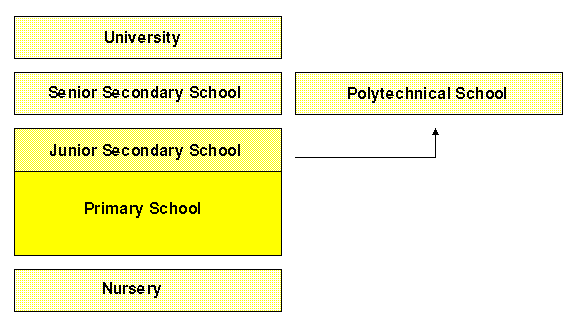Ghanaian JSS students completing an examination
Free and compulsory primary education was introduced to Ghana with the Education Act of 1961. This led to a surge in school enrollment and challenged the nation to overcome a scarcity of qualified teachers. From the enactment of the 1961 policy until 1987, primary school consisted of 10 years of education in Ghana. The 1987 act reduced this to nine years with the years of "junior secondary school" (JSS) designated as grades 7 through 9. This was implemented due to findings in the Dzobo Committee report of 1973, which stated that intermediate education in Ghana should consist of more vocational, science, agricultural, and technical courses to align with national development goals. Upon completion of JSS, students receive a Basic Education Certificate (BECE) signifying satisfactory grade-level mastery of subjects including English language, Ghanaian language and culture, social studies, integrated science, mathematics, design and technology, information and communication technology, French (optional), religious and moral education. Typically students matriculate to secondary school at the age of 15.
The Dzobo Committee found that junior secondary level students required improved technical curriculum options to align with national development goals


